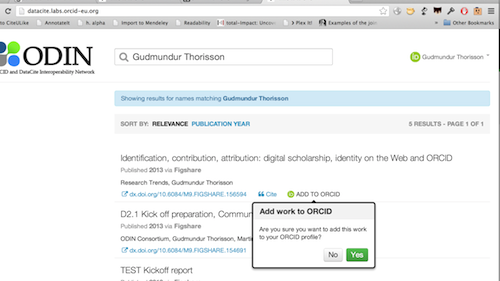We are now only 2 1/2 months away from the first major ODIN community event. The combined codesprint and 1st year conference which mark the half-way point of the 2-year project will take place over three days October 15-17, hosted by ODIN partners CERN.
As we draw closer to the event date, the various logistical pieces are clicking into place one by one. Check the event page for the latest information, including the tentative programme, a list of confirmed speakers, accommodation and more:
https://odin-project.eu/events/1st-year-big-bang-and-codesprint/
Coding with confidence
The codesprint part of the event is a 1 1/2 day-and-night hands-on technical workshop. Participants from several ODIN partner organizations and external experts will come together to pool their resources and work on coding projects. These projects will demonstrate the potential of the identifier “awareness layer” which is at the heart of ODIN’s mission.
See this page for a provisional list of codesprint projects.
We will have more to say about the specific goals and practicalities for the codesprint in the coming weeks, so stay tuned! In the meantime, feel free to register, to contact us with questions, and/or to leave suggestions about additional projects.
Engaging with the community
The final day of the event is a conventional plenary-style conference open to all, where ODIN partners will present results from the first half of the 2-year project and receive feedback from the community. In addition to ODIN partners themselves, representatives from numerous stakeholder organizations will attend and present, including CrossRef, CERIF/EuroCRIS, UK DataService, PLoS and others.
A provisional schedule for the conference is available here.
Date with a supercollider

 The tool enables users to search the
The tool enables users to search the